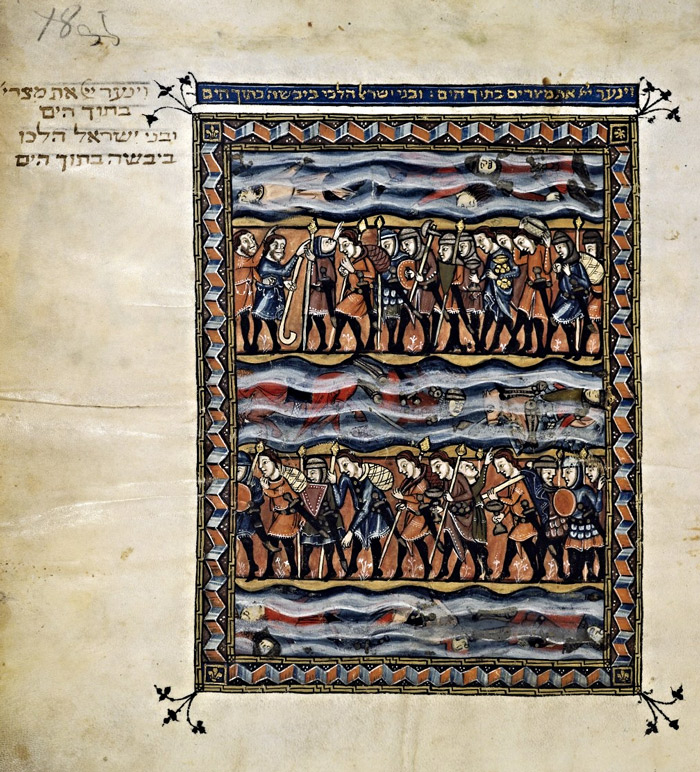Spill the Wine
Apr 6, 2012
 When Jewish families gather round the dinner table tonight for seders commemorating the exodus of the ancient Israelites from slavery in Egypt, they will read from books called haggadahs: collections of biblical passages, prayers, hymns, rabbinic discourse, and social commentary. The page above is from an eight-hundred-year-old haggadah from Catalonia, illuminated very much like Christian texts of its era. In the picture, as in the bible, Israelites are crossing the Red Sea via miraculous passageways of dry land, while all around them the Egyptian army is drowning in the waves.
When Jewish families gather round the dinner table tonight for seders commemorating the exodus of the ancient Israelites from slavery in Egypt, they will read from books called haggadahs: collections of biblical passages, prayers, hymns, rabbinic discourse, and social commentary. The page above is from an eight-hundred-year-old haggadah from Catalonia, illuminated very much like Christian texts of its era. In the picture, as in the bible, Israelites are crossing the Red Sea via miraculous passageways of dry land, while all around them the Egyptian army is drowning in the waves.
The bearded man near the upper left, holding a shepherd's crook, is Moses. Some of the other Israelites are carrying sacks and baskets and jugs and candlesticks and other household items, but many more bear swords and shields. They are an army, fighting their way out of Egypt.
Modern hagaddahs tell the story with less of a military emphasis. The people were all slaves; then God and Moses helped them escape. During Passover, Jews are asked to remember that even today there are people on earth who suffer in slavery and ache for freedom.
The story has it that God made the Egyptian people suffer dreadful plagues; Pharoah's soldiers, as seen here, were all drowned. Freedom from bondage is something to celebrate, but plagues and drowning, even of the enemy, are not. To prevent excessive, inappropriate celebration, the passover seder requires reducing the amount of wine in each cup–only by a few drops, but still.
Raise a glass, drink to freedom. But drink a little less.